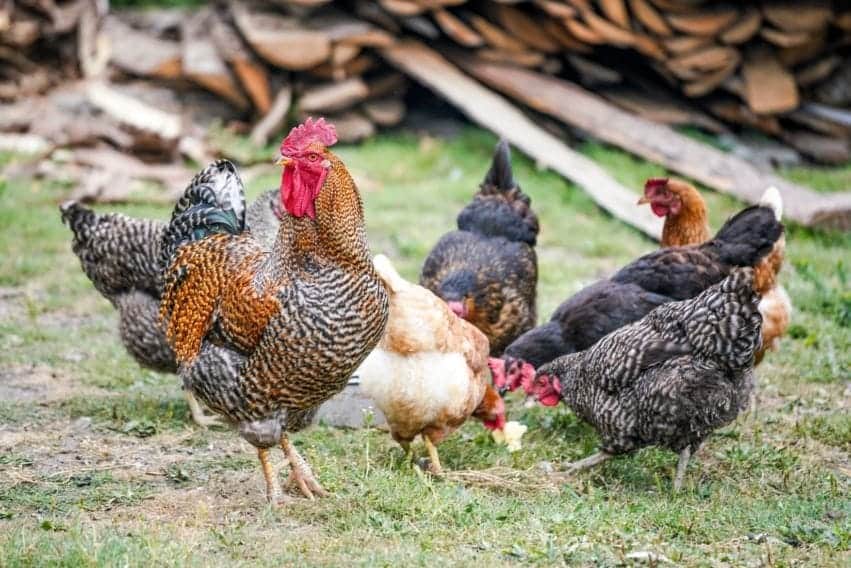If you are collecting fewer eggs than you expect, even when your hens are laying well, the birds could be eating the eggs.
Chickens can start eating eggs by accident. Maybe they stepped on an egg and broke the shell. And because these birds are quick to eat anything that looks like food, they’ll devour the egg happily.
The key is to identify this habit because the longer your hen does it, the harder it is to fix. They may start breaking eggs intentionally to eat them once they realize that a fresh egg is tasty. But something could be prompting egg eating.
Read on to find out what it could be.

The 11 Reasons Why Chickens Eat their Eggs
1. Overcrowding
Free-range your chickens or ensure that you observe the general rule of thumb of 3 square feet for every chicken in the coop.
Failure to observe this kind of spacing will lead to too many birds cramped together. Moreover, it’s a recipe for disease, infections, dirt, and behavioral problems including gnawing at their own eggs.
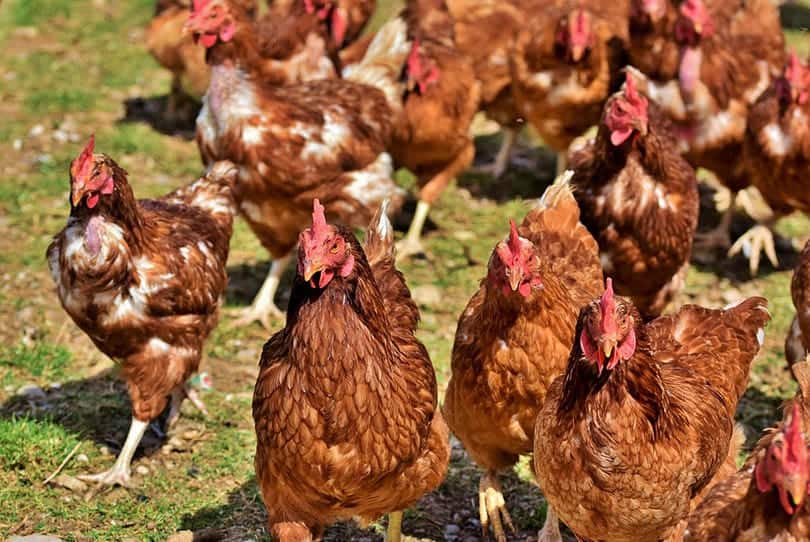
2. Limited Nesting Boxes
Chickens prefer privacy when it comes to producing their eggs. These birds even work harder to find discrete nesting places than they do food. Therefore, ensure that you offer your flock at least one nesting box for four hens.
Few boxes and too many hens will result in sharing, which translates to broken eggs. If any of your hens get hold of a broken egg, be sure they’ll eat it.
3. Anxiety and Stress
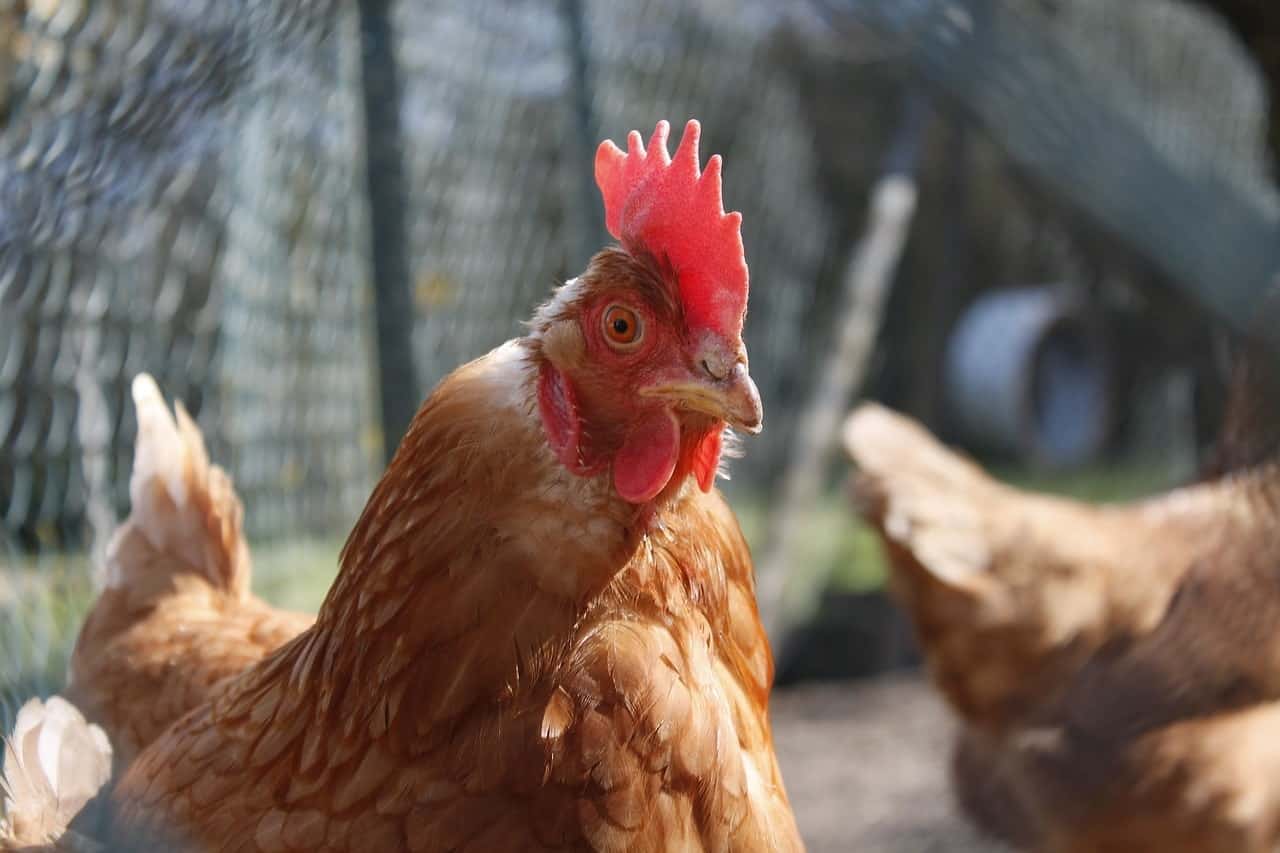
A disturbed hen tends to pick and pluck anything it can, including the feathers and eggs.
4. Accidental Discovery
An egg can break at any time, and a hen may begin to eat it and develop a taste for eggs. So, if the initial cause for egg eating was accidental, it may gradually become a habit for your chicken. This is all the more reason you should stop it as soon as possible.
5. Unbalanced Diet

A laying hen requires a calcium intake of 4 to 5 grams every day. Therefore, hens are susceptible to eating their eggs when they lack calcium in their diets.
Eggshells contain about 40% calcium, and the hen desperately needs it the same way pregnant women are naturally prompted to eat dirt due to a lack of certain minerals.
6. Dehydration and Hunger
Lack of enough fresh drinking water and daily feeds will lead to a drop in egg production. It is also the reason your chicken pecks and eats its eggs because a thirsty and hungry hen will crack any available egg.
Also, a low-protein diet encourages egg eating just because the hen is trying to get the nutrients they need. Layers require a 16% to 18% protein concentration, but new or molting layers also consume more. So, be sure to provide your flock with enough nutrient-rich food and not supplement their feeds with excess scratch, corn, and other low protein treats.
7. Just Being Greedy
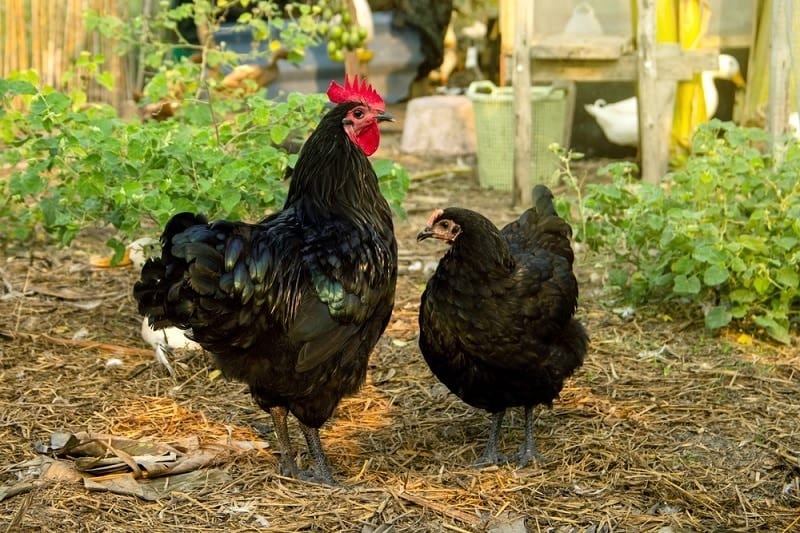
Chickens are omnivorous, which means they eat animal and plant products. They’ll eat just about anything, including their eggs.
Sometimes there’s no other reason other than them being greedy. And as cannibalistic omnivores, they’ll eat their eggs, bugs, worms, and even their feces.
8. Boredom
Chickens get bored too, and just like humans, they can do anything to stay busy if they stay in one place with nothing to do for long. So, they may turn to their eggs, and they’ll never stop once they figure out that egg content tastes fantastic.
9. Curiosity
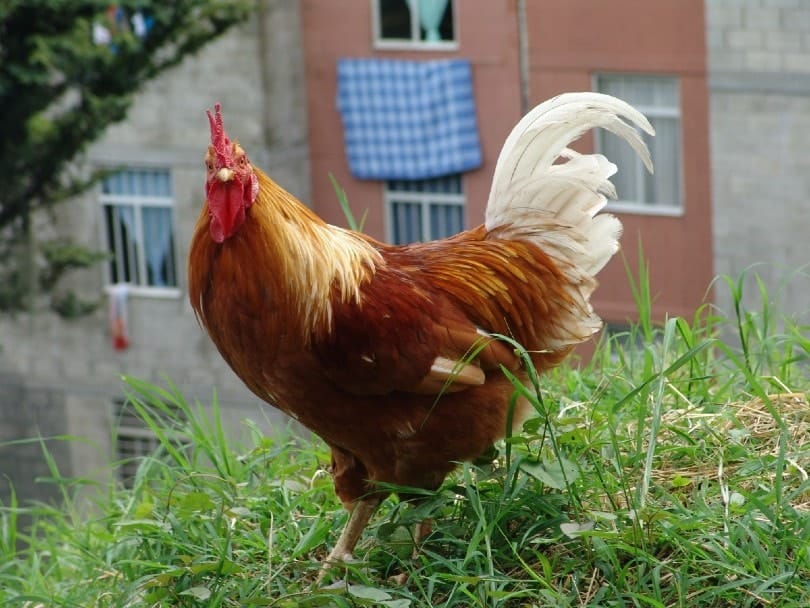
Don’t mistake your hen’s poker face for “innocence” or foolishness. Chickens are pretty intelligent, thanks to their top-notch sensory abilities.
So, a hen may peck at their eggs sometimes out of sheer curiosity. Expect the odds to be even higher if broken eggs are lying around the hen. Without a doubt, they’ll interest the chicken, which will eat the eggs.
10. Poor Lighting
Hens prefer to lay their eggs in dark areas and corners. Anything over 16-17 hours is too much light and will stress out the hen, and the next thing she’ll be doing is eating her eggs.
A hen won’t peck the egg if she can’t see it. It doesn’t mean that you should allow her to lay in the dark throughout, though. Provide at least 14-15 hours of lighting daily.
11. Young and Inexperienced
A pullet that just hit puberty and laid her first eggs often produces thin and weak-shelled eggs. Due to the egg’s softness, it’ll crack with the slightest impact. Of course, a young inexperienced layer will confuse it for food and not let free food just lie there.
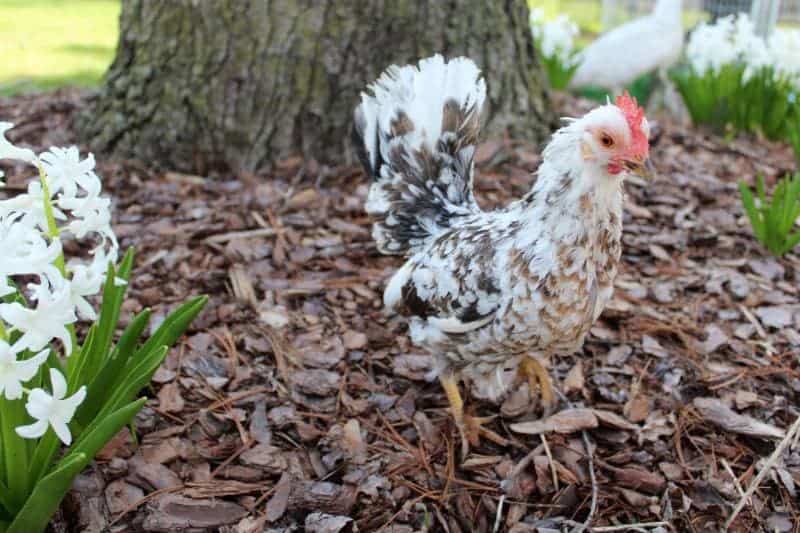

How to Stop Your Chickens from Eating Their Eggs
1. Fix Their Diet
Start by providing the birds with a nutritious and balanced diet designed for laying hens. Then, ensure she gets enough proteins by offering to supplement her supply with feeds like mealworms, yogurt, and sunflower seed.
Also, add more calcium to her feed. The most available calcium sources include crushed eggshells. Eggshells are the easiest solution for calcium deficiency because they are economical and easy to find. Just ensure to crush the shells properly to avoid affecting your hen’s gizzard.
2. Promote Health and Strong Eggshells
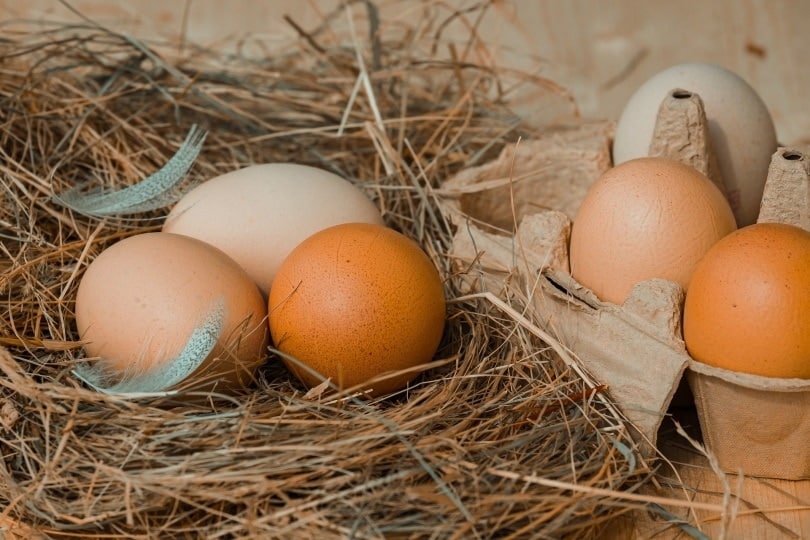
Layers need a substantial amount of calcium to lay hard-shelled, firm, and healthy eggs. Add supplemental calcium to their feeds, such as crushed eggshells and oyster shells, to prevent soft-shelled and easily breakable eggs.
3. Use Dummy Eggs
Golf balls, wooden, or ceramic eggs are a great trick to stop egg eating among your flock. The hen will get tired of pecking at an impenetrable egg and give up trying.
This trick can also help teach the hen where to lay its eggs.
4. Darken the Nesting Box
Chickens can’t see in the dark, so they are less likely to turn to their eggs if it’s dim or dark. You can install curtains in the nest box and keep them partially opened until the hens get used to the additional feature.
With time, you may find that keeping the curtains completely drawn will stop the egg-pecking behavior.
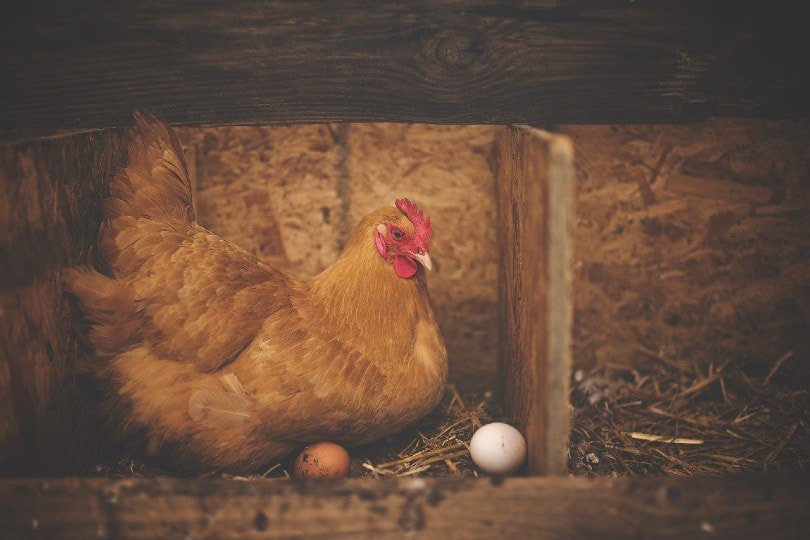
5. Collect Eggs Often
Maybe your hen feasts on its eggs because it gets too familiar with them. Chickens can’t eat eggs that they don’t have, so collect the eggs as soon as possible, especially if you want to stop the already developed egg-eating behavior.
Piled eggs just beg to be eaten, plus they can easily break!
6. Fill an Empty Egg with Soap or Mustard
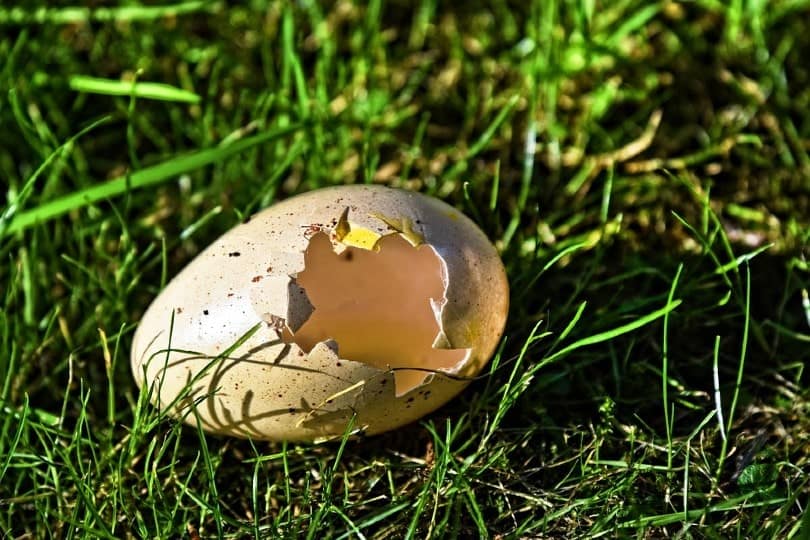
Hens loath the taste of soap and mustard. Fill an empty egg with dish soap or mustard, which also mimics the look of egg white and the yolk.
You can do this by emptying an already pecked egg, replace the content, and place it back in the nest. Your hen will break the egg and find the content offending. Then, hopefully, the bird will leave the eggs alone for good.
7. Provide Distractions
Turn the chicken coop into a multi-leveled playground using features like ladders, or build your birds their private dust bathing spots.
You can also free-range your flock occasionally or provide them with a chicken perch. Hanging cabbages can also offer alternative pecking surfaces.
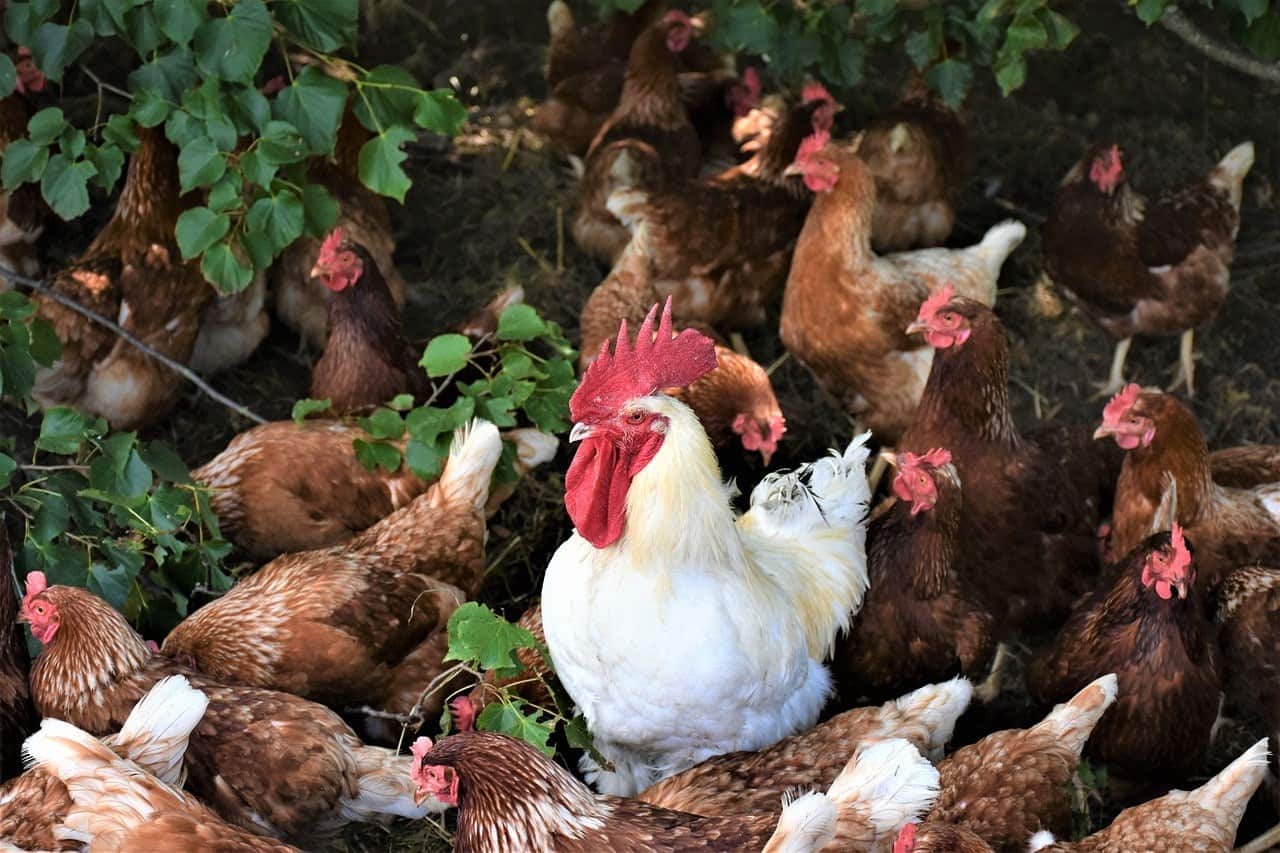
8. Build Slanted Nesting Boxes
Better still, you can make the eggs disappear altogether by using a slanted nesting box. This slanted item will allow the egg to roll away and get from the beak’s reach immediately after the hen lays.
9. Provide Cushioned Nesting Spot
Prevent the egg from breaking when it hits the hard ground after an egg lays by placing soft materials like pads, straws, or hay for it to land on.
This will prevent breakage that can prompt egg-eating. Also, clean after a broken egg quickly!
10. Pay Attention to Your Birds’ Welfare
A well-organized and clean chicken house is essential if you want to avoid problem behaviors and keep the chickens happy.
Consider factors like nesting space and stressors like the number of birds in the coop.

How to Tell Which Chicken Is Eating Eggs
It would be best to identify and catch the culprit in the act as soon as possible because the habit can spread as other hens pick up the behavior.
Here’s how to identify the rogue hen.
Noise
Chickens can’t get through the eggshells silently when they are pretty hardy for their beaks. So, you will hear this classic and distinct “TAP-TAP” noise as the hen breaks into the shell.
All you have to do is to catch the hen in the act.
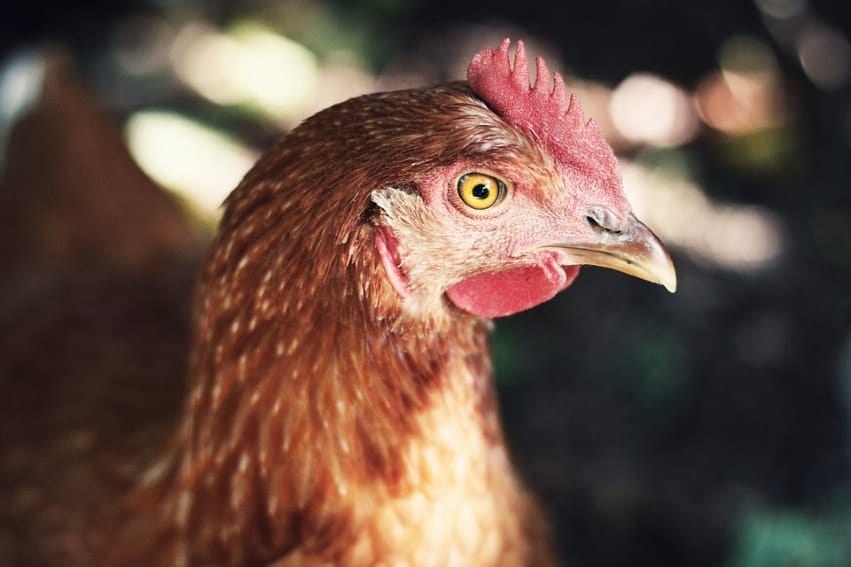
Color the Eggs
Assign eggs to each chicken and fill one with food coloring. Next, poke a small hole in the egg’s membrane using a syringe and break the membrane.
Shake the egg to scramble the inside and inject the food color. You may want to avoid red and use green, blue, or black instead. Then wait and see the hen with food coloring all over her beak and feathers.
Check the Belly or Beak
You might also spot a bird with broken egg remnants stuck to her belly or the egg yolk on her beak. That’s the culprit!

Final Thoughts
Chickens eat their eggs and other chickens’ as well. These birds are capable of cannibalism and the problem can be rampant if you don’t address it in time. However, ensure that you are doing everything possible to avoid egg-eating before you rule it as a character flaw.
Featured Image Credit: Zosia Korcz, Unsplash
